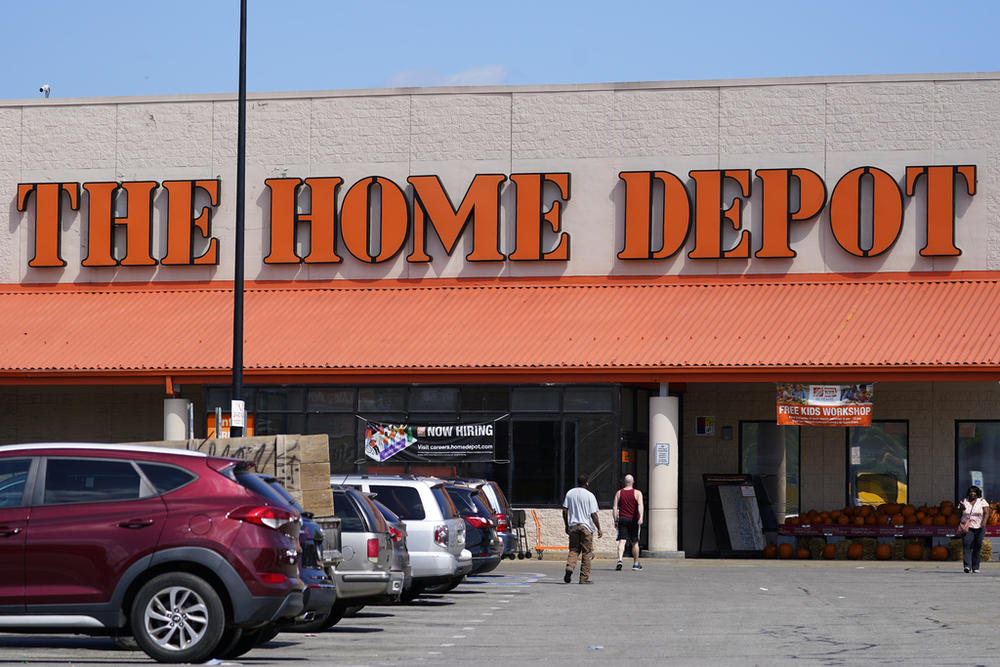
Caption
Cars are parked at a Home Depot in Philadelphia, on Sept. 21, 2022. After years of explosive growth during the pandemic, Home Depot's revenue during the first quarter fell short of expectations and the company cut its profit and sales outlook for the year, sending shares skidding before the opening bell Tuesday May 16, 2023.
Credit: AP Photo/Matt Rourke, File

